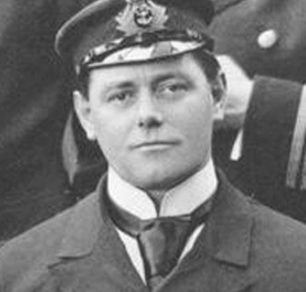Motherwell Football Club is a Scottish professional football club based in Motherwell, North Lanarkshire, which plays in the Scottish Premiership. Motherwell have not dropped out of the top-flight of Scottish football since 1985, and have lifted one trophy in that time – the Scottish Cup in 1991.
Clad in their traditional claret and amber, Motherwell play their home matches at Fir Park Stadium and have done since 1896. The club’s main rivals over the years have been Hamilton Academical and Airdrieonians, due in part to their close geographical proximities. These matches are known as the Lanarkshire derby.
The club have won four major trophies in domestic football: the Scottish League title in 1931–32, the Scottish Cup in 1951–52 and 1990–91, and the Scottish League Cup in 1950–51.
Sports Illustrated has suggested Motherwell F.C.’s fans as the originators of the “Viking Thunder Clap“, a supporting chant eventually popularized by the fans of the Iceland national football team where fans stay silent and let out loud synchronized claps seconds apart, gradually speeding up; the chant received wider international attention during the Euro 2016.
History
Beginnings.
Motherwell FC was born on 17 May 1886, when representatives of the two main Motherwell works teams Glencairn FC and Alpha FC met in Ballie’s pub in the town’s Merry Street, and decided to merge the two teams with the aim of creating a club to represent the town as a whole at a higher footballing level.[2] Motherwell’s debut fixture proved to be a successful one as they overcame Hamilton Academical 3–2.
The early years proved somewhat chaotic as the club had little regular competition to play in, and matches would often start with players short, as men failed to turn up on time after their shifts in the local ironworks. On 5 August 1893 the decision was made to turn professional, and the club was consequently elected to the league, then being the only Lanarkshire side to compete at national level.
Up until 1895 the club had played at a few different venues, including a site at Roman Road, and Dalziel Park. The small pitch and muddy conditions at Dalziel Park were deemed unsuitable and Lord Hamilton granted a lease on a plot of land on his Dalzell estate. This new ground was named Fir Park and has remained the club’s home for over 120 years.
The following years saw the club grow, appointing their first and longest serving manager to date, John ‘Sailor’ Hunter, who would go on to steer the club into its most successful period.
In 1913 the decision was made to change the club’s colours from blue to the now signature claret and amber. It is thought this was inspired by the success of Bradford City, who also sport claret and amber, although a more romantic version of events claims them to have been Lord Hamilton of Dalzell’s racing colours.
1920s and 1930s successes
Motherwell playing Argentina national team at Boca Juniors stadium, 1928.
Motherwell enjoyed a successful period in the aftermath of World War I, managed by John Hunter. The club placed third in the 1919–20 season and, although narrowly avoiding relegation in 1924–25, they steadily climbed the table and enjoyed seven successive seasons finishing in the top three.
In the summer of 1927, the club made a very successful tour of Spain, winning six out of the eight games they played and losing only one. These results included an emphatic 3–1 victory over Real Madrid and a 2–2 draw with Barcelona. Following their success in Spain, the club went on another summer tour, this time of South America. After losing only three of their previous ten games, the tour culminated in a 5–0 defeat by a Brazilian League Select side.
Motherwell’s first (and to this day, only) Scottish League championship came in 1931–32 – with 30 wins in 38 fixtures, scoring 119 goals – a record 52 of which were scored by Willie MacFadyen, who remains to this day the record holder for most goals scored in a single season and one of the club’s all-time top goalscorers with 251 goals. The championship was sealed on 23 April 1932, when Rangers could only draw at home against Clyde, handing Motherwell the title without kicking a ball. This was also the only League title won by a club outside the Old Firm between 1904 and 1947. In the two seasons following the league title win (1933–34 and 1934–35), ‘Well finished runners-up, as they had also been in 1926–27 and 1929–30. They also contested three Scottish Cup finals in this period – in 1931, 1933 and 1939, but lost them all.
Post-World War II period
Following the break-up of the squad after World War II, the club were not instantly successful. It then captured two major trophies in as many years with victories in the 1950 Scottish League Cup Final and the 1952 Scottish Cup Final. The club was then relegated for the first time ever at the end of the 1952–53 season, but the club were promoted the next year.
Following their return to the First Division, Bobby Ancell took management of the club in 1955 and presided over an era in which highly regarded Scotland stars including Ian St. John and Charlie Aitken played for the club. However, Motherwell were unable to keep their assets, and no trophies were won in Ancell’s era. His resignation came in 1965 amidst a downturn in form which eventually saw the club relegated back to the Second Division at the conclusion of the 1967–68 season.
1970s recovery and the McLean era
Motherwell were immediately promoted back to the First Division in 1969, maintaining a mid-table position. The 18-team First Division was superseded by a new 10-team Premier League for the 1975–76 season, at which time they were managed by Willie McLean and his assistant Craig Brown (who would become manager almost 35 years later). Under their management, Motherwell improved to fourth in the table with players such as Bobby Graham, Willie Pettigrew and Bobby Watson. The most notable cup run of that period was the 1975-76 Scottish Cup where they eliminated Celtic and lost out in the semi-final to Rangers.
1980 and 90s
Tribute to Motherwell’s 1991 Scottish Cup winning side.

Relegation down to the now-First Division and promotion back to the Premier League occurred twice in the early 1980s, before a decade under manager Tommy McLean (brother of Willie) culminated in a Scottish Cup win in 1991. However, similarly to the Ancell era, Scotland internationalist Tom Boyd was sold in the close season after the cup win. Results faded for two years before reaching another two season zenith immediately following the signing of Paul Lambert with third (1993–94) and second-placed (1994–95) Premier League finishes. The 1995 runners-up finish was the club’s highest finish since 1933–34.
With Tommy McLean’s departure to Hearts in 1994, much of his squad was broken up; a large fee in particular was paid by Celtic for Phil O’Donnell. Much of this money was reinvested in the squad, while the club cycled through managers including Alex McLeish and Harri Kampman. At this point, in August 1998, John Boyle bought the club, taking over from John Chapman. Billy Davies was appointed as manager, and large transfer fees were paid for prominent players including ex-Scotland internationals John Spencer and Andy Goram. The investment though failed to provide results on the pitch.
2000–2009
By the end of Davies’ tenure the club were in financial trouble. Eric Black was briefly in charge with the club floating near the foot of the table before it was placed in administration in April 2002 with losses approaching GBP 2 million yearly. Black resigned, and was replaced by Terry Butcher. The club’s outlook remained bleak as they were forced to make redundant or release 19 players and replace them with younger players; Boyle also placed the club up for sale. Relegation in 2002–03 – normally automatic following a last-place finish in the league – was avoided on a technicality, as First Division winners Falkirk lacked a stadium meeting Premier League regulations.
Fir Park, home of Motherwell.
Despite the lack of resources, a number of young talented players were found to play for the club; crucially, when many of these moved on, including Stephen Pearson and James McFadden, they brought revenue in the form of transfer fees, and with John Boyle waiving the club’s personal debt to him, its financial future was assured by the conclusion of the 2004–05 season with the club’s yearly losses falling to one of the lowest figures in the Premier League and the club coming out of administration in time to avoid a ten-point Premier League penalty which was being phased in for teams in administration. On the field, the club also managed to reach the League Cup final, although they were comprehensively defeated by Rangers. Butcher moved on to Sydney at the end of the 2005–06 season, and was succeeded by his assistant Maurice Malpas. Malpas’ stint at the club lasted just one season before his resignation in May 2007. After a short period with Scott Leitch as caretaker manager, Mark McGhee was appointed to the position. In his first season as manager McGhee would take the club to 3rd in the league and thus qualify for the UEFA Cup for the first time in 13 years where they would be beaten by French side AS Nancy 3–0 on aggregate. Mark McGhee left Motherwell for the vacant managerial position at Aberdeen in June 2009 to be replaced by Jim Gannon. Former Scotland manager Craig Brown took over when Gannon left.
2010–present.
Brown helped the club finish 5th in the SPL and qualify for Europe. The 2010–11 season saw the club in the Europa League and they defeated Breidablik and Aalesunds before losing in the Play-off round to Odense preventing them from reaching the group stages of the competition. Brown left Motherwell for Aberdeen on 10 December 2010. Stuart McCall was named as his successor. This season saw the club reach the Scottish Cup Final where they were defeated 3–0 by Celtic.
The 2011–12 season saw Motherwell reach the qualifying round of the Champions League for the first time. They finished third, one place outside the normal two spots allocated to the SPL for the Champions League. However the club was awarded a place because the club that had finished above them, Rangers, went into liquidation and were prevented by UEFA from playing in European competitions. In the draw for the 3rd qualification round of the Champions League Motherwell were drawn against Greek heavyweights Panathanaikos. This ended in disappointment as Motherwell were knocked out after losing 2–0 at home and then 3–0 away. The 2012–13 season brought even greater success in the SPL as the club finished 2nd in the table and once again qualified for the Europa League. It also saw striker Michael Higdon win the PFA Scotland Players’ Player of the Year award. Goalkeeper Darren Randolph (second year running), defender Shaun Hutchinson and midfielder Nicky Law were selected for the PFA Scotland Team of the Year.

A panoramic view of Fir Park, pictured during a Scottish Premiership fixture between Motherwell and Dundee United.
Motherwell were granted associate membership of the European Club Association in June 2013, becoming the fifth Scottish club to join the Association. The club were invited to join after consistent qualification for European competition between 2008 and 2013. In season 2013–14 Motherwell were knocked out of the Europa League by Russian side Kuban Krasnodar 3–0 on aggregate in the third qualifying round. On 22 January 2014 Motherwell won their 40th Lanarkshire cup beating Hamilton Academical 1–0 thanks to a 54th-minute goal by 19-year-old youngster Jack Leitch. On the final day of the 2013–14 Scottish Premiership, Motherwell won 1–0 at Aberdeen with a dramatic 93rd-minute winner, leapfrogging Aberdeen in the process to seal a second successive runners-up spot in the league. Despite conceding the most goals (60) out of the top six teams, European football was delivered for the sixth time in seven seasons, with a record points total (70). It was a season that also saw a first ever competitive defeat to Lanarkshire neighbours Albion Rovers, sitting third bottom of Scottish League Two at the time, 1–0 in the Scottish Cup.
Despite three successful consecutive league campaigns, Motherwell made a poor start to the 2014–15 Scottish Premiership, which ultimately led to the resignation of manager Stuart McCall on 2 November 2014. Despite the appointment of Ian Baraclough in December 2014, Motherwell were eventually consigned to a Scottish Premiership relegation play-off spot after a defeat at St Mirren in the penultimate league match of the 2014–15 season. In the 2014–15 relegation play-off finals, Motherwell faced Rangers. The first leg, at Rangers’ home ground, Ibrox Stadium, saw Motherwell run out as winners with a score of 1–3. In the second leg, Motherwell celebrated staying in the top division by winning, 3–0. On 23 September 2015, Motherwell parted ways with manager Ian Baraclough. Mark McGhee returned in October 2015 before being sacked in March 2017 after a poor run of results.
On 28 October 2016, Motherwell became a fan-owned club when supporters club Well Society’s £1 deal with Les Hutchison was concluded. On 13 October 2017, Manager Stephen Robinson extended his contract until May 2020. On 31 December 2020, Robinson resigned as manager, with Keith Lasley taking interim charge.
In Popular Culture and Literature
In the crime novel The Greenock Murders by Kieran James (2021), a 10-year-old autistic boy, Wee Robbie, moves from Motherwell to Greenock with his family. He refuses to give up his support of Motherwell FC despite repeated abuse and bullying. In the closing stages of the novel, Motherwell beats Rangers 2–1 in a fictional 2022 Scottish Cup Final, involving real players’ names on both sides.




Thank you for reaching out! If you have any specific questions or topics in mind, please feel free to share them, and I’ll do my best to assist you. Whether you’re curious about a particular technology, scientific concept, literary work, or anything else, I’m here to provide information, advice, or engage in a discussion. Don’t hesitate to let me know how I can help you further!
Thank you for your message! It seems like you’re referring to the repetitive nature of the comments provided earlier. If you have any specific questions, topics, or concerns you’d like to discuss, please feel free to share them. Whether it’s about technology, science, literature, or any other subject, I’m here to assist you. Just let me know how I can help you further!